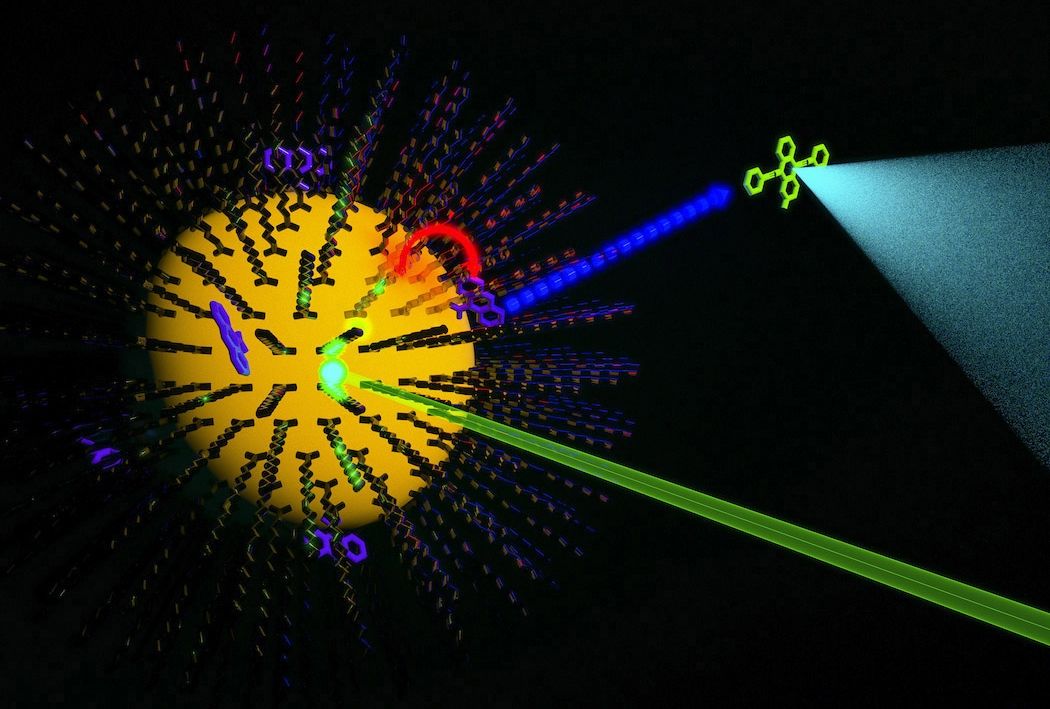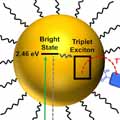“Building the world’s largest factory to accelerate a sustainable energy future.”
Category: solar power – Page 155
This Is the Enormous Gigafactory, Where Tesla Will Build Its Future — By Jack Stewart | Wired
““The factory is the machine that builds the machine,” Musk says, sitting in the lobby of his new building.”

PV Nano Cell’s nanometric silver conductive ink enables non-contact digital inkjet printing
Nice.
PV Nano Cell has commercially developed ‘Sicrys’, a single-crystal, nanometric silver conductive ink delivering enhanced performance for digital conductive printing in mass production applications. The inks are also available in copper-based form, delivering all of the product’s properties and advantages with improved cost efficiency.
Problem
Solar cell metallization is not yet fully optimized for cost and resource conservation. Cell producers currently endure silicon cell breakage during cell metallization, and higher-than-necessary costs for silver. Traditional screen printing of conductive grid lines involves direct contact with brittle cells, resulting in breakage and silicon waste. Additionally, the current technologies for metallization create lines that are wider and thicker than necessary, inflating silver costs.

Breakthrough solar cell captures carbon dioxide and sunlight, produces burnable fuel
Researchers at the University of Illinois at Chicago have engineered a potentially game-changing solar cell that cheaply and efficiently converts atmospheric carbon dioxide directly into usable hydrocarbon fuel, using only sunlight for energy.
The finding is reported in the July 29 issue of Science and was funded by the National Science Foundation and the U.S. Department of Energy. A provisional patent application has been filed.
Unlike conventional solar cells, which convert sunlight into electricity that must be stored in heavy batteries, the new device essentially does the work of plants, converting atmospheric carbon dioxide into fuel, solving two crucial problems at once. A solar farm of such “artificial leaves” could remove significant amounts of carbon from the atmosphere and produce energy-dense fuel efficiently.

Scientists Synthesize Liquid Fuel from Solar Energy
The nextgen of Solar and fuel energy.
Scientists have just discovered a way to directly convert solar energy into a synthetic fuel using carbon dioxide. Current solar technologies operate in either photovoltaic solar or thermal solar. Photovoltaic solar energy is generated through solar panels, which are typically seen on the roofs of houses and many solar plants. The other method of thermal solar is typically only used in large-scale energy plants, as it used mirrors to focus solar energy to heat a liquid which then powers turbines. Both methods, however, involve the conversion of solar energy into electricity. While electricity is useful, much energy is lost in the storing of electricity, something that the conversion process to liquid fuel overcomes.
Welcome to Lab 2.0 Where Computers Replace Experimental Science
We spend our lives surrounded by high-tech materials and chemicals that make our batteries, solar cells and mobile phones work. But developing new technologies requires time-consuming, expensive and even dangerous experiments.
Luckily we now have a secret weapon that allows us to save time, money and risk by avoiding some of these experiments: computers.
Thanks to Moore’s law and a number of developments in physics, chemistry, computer science and mathematics over the past 50 years (leading to Nobel Prizes in chemistry in 1998 and 2013) we can now carry out many experiments entirely on computers using modeling.

Quantum dot photosensitizers as a new paradigm for photochemical activation
Interesting work on solar energy and Q-dot photosensitizers.
Interfacial triplet-triplet energy transfer is used to significantly extend the exciton lifetime of cadmium selenide nanocrystals in an experimental demonstration of their molecular-like photochemistry.

Photosensitizers are an essential component of solar energy conversion processes, in which they are used to generate the highly reactive excited states that enable energy conversion (e.g., photochemical upconversion).1, 2 Typically, molecular triplet photosensitizers are used for such applications, but to improve the solar energy conversion process, the identification and preparation of next-generation triplet photosensitizers is required. However, the design of such photosensitizers—suitable for solar energy conversion and photocatalytic applications—remains a challenge.3

Facebook’s solar-powered internet drone takes flight
SAN FRANCISCO Facebook Inc (FB.O) said on Thursday it had completed a successful test flight of a solar-powered drone that it hopes will help it extend internet connectivity to every corner of the planet.
Aquila, Facebook’s lightweight, high-altitude aircraft, flew at a few thousand feet for 96 minutes in Yuma, Arizona, Chief Executive Mark Zuckerberg wrote in a post on his Facebook page. The company ultimately hopes to have a fleet of Aquilas that can fly for at least three months at a time at 60,000 feet (18,290 meters) and communicate with each other to deliver internet access.
Google parent Alphabet Inc (GOOGL.O) has also poured money into delivering internet access to under served areas through Project Loon, which aims to use a network of high-altitude balloons to made the internet available to remote parts of the world.

Facebook Test-Flies Drone to Bring Internet to Remote Areas
US social networking giant Facebook announced on Thursday a successful test of its solar-powered Aquila drone, which will beam Internet to people in remote areas.
MOSCOW (Sputnik) — Facebook has been working on Aquila Project with leading experts in aerospace and communication technologies, from NASA’s jet propulsion lab to a small UK firm that created one of the world’s longest flying solar-powered drones.
Huge sail will power JAXA mission to Trojan asteroids and back
I wonder, if NASA and/or SpaceX goes to Mars in the 2030’s as planned, by the time the 2050’s roll around a manned attempt to Ceres or Jupiter trojans might be attempted or perhaps an unmanned vehicle made on Mars beats this sail.
Japan’s space agency has its sights on unexplored asteroids as far away as Jupiter, a project that at one level draws on centuries of sail science.
The Japan Aerospace Exploration Agency this month unveiled a huge prototype solar sail designed to power a JAXA probe as it explores asteroids that circle the sun on roughly the same orbit as Jupiter. The sail measures 2,500 sq. meters and is made up of thousands of ultraslim solar panels.
“The fascination of the universe lies in its countless unknowns, and our research is a challenge to reveal the mysteries with our own hands,” said Jun Matsumoto, a JAXA researcher who designed the kite-like sail.